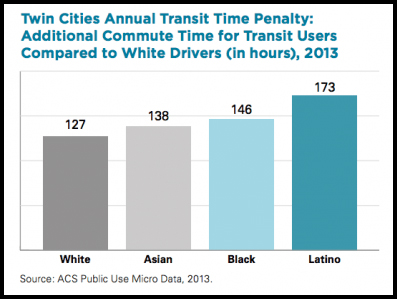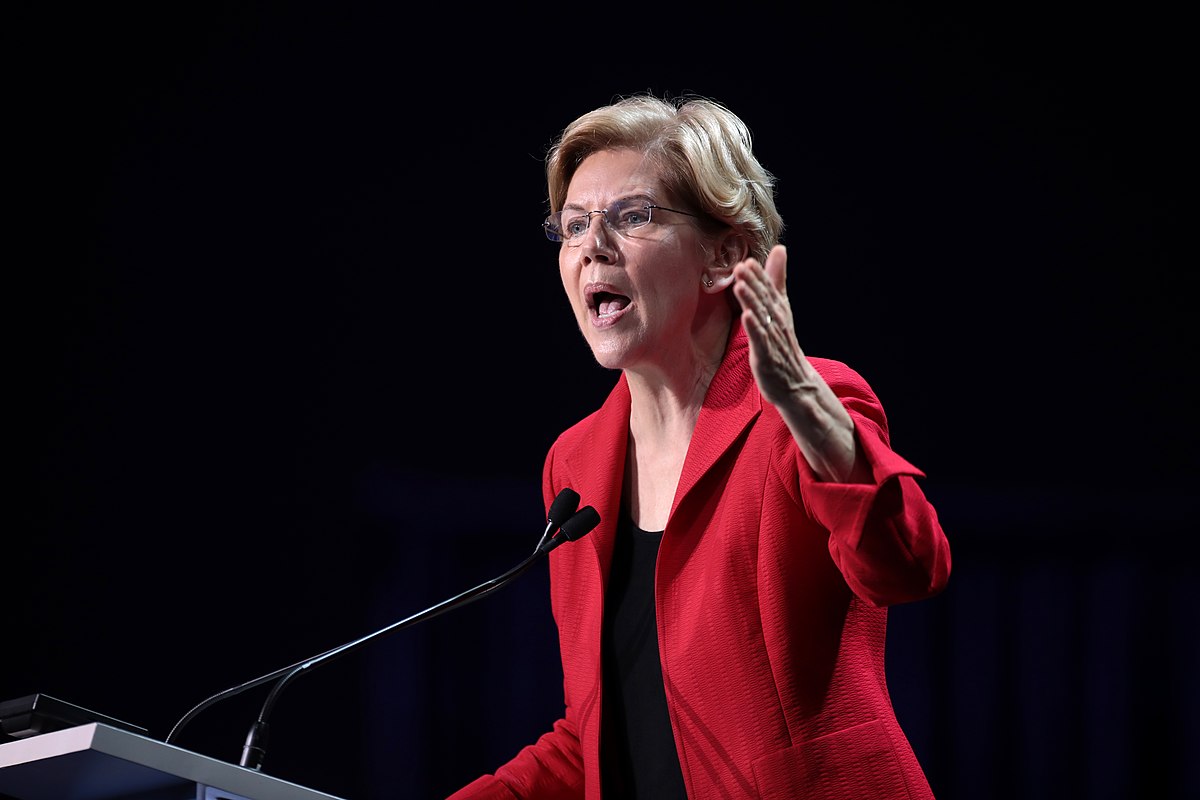Editor's note: This post originally appeared at streets.mn and is republished here with permission. Here at Streetsblog, we've taken a close look at the transportation plans of top-polling Democratic candidates Sanders, Biden, and Bloomberg (along with erstwhile candidate Buttigieg), but haven't yet taken a deep dive into Elizabeth Warren's plans, partly because she hasn't rolled out a single transportation or infrastructure policy proposal, but rather woven them into her housing, climate change, and jobs plans. We appreciate streets.mn for digging into the positions the Massachusetts senator for this piece.
Elizabeth Warren’s plan for transportation and infrastructure focuses on the urgency created by climate change and the need to invest in ways that increase equity and climate resilience. She notes that “45 percent of Americans still do not have access to public transportation, leaving those without access reliant on car ownership to get to work, school and worship.”
We won’t reach our climate goals as long as so many rely on cars to get around. That’s why Warren has proposed a Build Green program, which would provide money to states, cities, counties, and tribal governments to expand public transportation and reduce reliance on cars. She also has a plan to make all light- and medium- duty vehicles electric by 2030.
Centering Racial Justice in Transportation
In talking about her approach to transit funding, Warren specifically cites research done here in the Twin Cities by local progressive orgs (Take Action, ISAIAH, the Center for Popular Democracy, and now-defunct Neighborhoods Organizing for Change) on racial inequity for public transit users. This research shows that transit users spend significantly more time commuting to and from work than drivers.
Disinvestment in public transit has a disproportionately negative impact on people of color. From the report, “That means that, for a month a year more than white drivers, transit commuters of color are unavailable for working, helping children with homework, helping parents get to the doctor, running errands, volunteering in their communities, or participating in their churches.”

The “transit time-penalty” is due to inadequate transit options and leads to longer commute times. Investing in public transportation is not just about climate change, but is one way to increase racial equity.
Members of the disability community are also harmed by inadequate access to transit. Elizabeth Warren’s Build Green proposals ensure communities that need transportation investments are receiving them. Warren’s transportation policies make clear transportation is more than a climate issue, it’s about equity.
A Climate-Oriented Framework
Throughout many of her plans, Warren prioritizes changing our regulatory framework to encourage adoption of green infrastructure at home and abroad.
Domestically, she calls for an end to fossil fuel subsidies and for the adoption of her Climate Risk Disclosure plan. Currently, businesses don’t disclose how climate change might impact their business model. This leads to what Al Gore calls a “carbon bubble,” where the risks created by fossil fuel use are not accounted for, which threatens not only our financial system but also our planet.
Zero Emissions by 2030
Transportation is the largest portion of greenhouse gas emissions in the United States. Elizabeth Warren has a plan to increase emissions standards annually, culminating in a requirement that all vehicles sold in 2030 produce zero emissions. To further support adoption of electric vehicles, Warren will invest in electric charging infrastructure to ensure charging stations are easily accessible throughout the country.
Better Transportation Through Smart Land Use
As any reader of streets.mn already knows, good land use is the foundation for sensible transportation policies. Warren’s plan for affordable housing (which includes $500 billion to produce millions of new homes over 10 years), calls out the need to eliminate unnecessary zoning rules like mandatory parking requirements and minimum lot sizes. She proposes $10 billion in competitive grant funding to incentivize local governments to “reform land-use rules to allow for the construction of additional well-located affordable housing units and to protect tenants from rent spikes and eviction.” Not only will this encourage the construction of more affordable housing, it helps create the dense, pedestrianized cities that can support successful transit, reduce commute times, and fight climate change.
Demand “Safe Streets for Everyone” at the National Bike Summit, hosted by the League of American Bicyclists March 15-17. Meet advocates from across the U.S. who are reshaping their communities and make your voice heard on Capitol Hill. Explore the Summit here.






